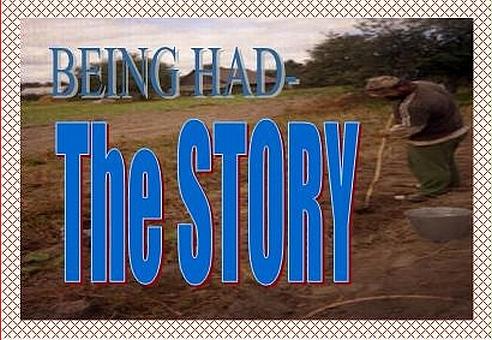Human trafficking in Poland...
Presented by Magdalena Jensen.
 |
On the 12th of January, the story of a poor Ugandan woman, lured from her country with hope of finding a better life in Europe, was made public. She has, in recent days, become the press' poster child for sex slaves ? a position I am sure must be difficult for her, yet, I am, on some level grateful that she has exposed herself and sacrificed her privacy to bring to the public?s attention such an important issue about which little details are known.
Now, Poland is 96 percent homogenous, so any foreigner on the street stands out. As such, there are many rumors about the vast numbers of Roma beggars that frequent Warsaw streets, trams and busses. It is rumored, and more than likely true to varying degrees, that the majority of the women, boys and girls are slaves. They are said to be 'owned' by larger rings of people who kidnap or buy them from impoverished families, then drugged and brought West where it is possible to earn more money on the street begging, selling oneself, or playing the accordion. It is also said that these people are kept drunk or drugged in order to inhibit them from running away. Really, while these sorts of stories seem too horribly sad to be possible, they are not far from the truth, as the story of the Ugandan woman shows.
Actually, Poland is perfectly positioned to be a country where trafficking of humans is not only easy but also desirable. The country is now an EU member, making it a veritable gateway to the West, but also it is the Eastern-most border of the EU, making it basically a welcoming mat for all sorts of things that can come from less open, less democratic countries like the Ukraine or Belarus or many other countries. Poland is often considered to be what is known as a 'transit country'. This means that Poland is really used as a portal into Western Europe people are brought through the country, likely given some sort of documents here and then transported farther west to cities like Berlin or London, which are extremely accessible from Poland, not to mention offer much larger financial possibilities in terms of the sex industry, illegal labour, or other sorts of forms of modern day human slavery.
The most recent figures available from the Attourney General, that helps prosecute cases of human trafficking, show that between 1997 and 2007 there have been 2,885 reported cases of human trafficking in Poland. That number, one must remember, takes into account only those cases where the victim of trafficking has been able to get to a police station and report his or her story. This sort of situation is, however rare and it is almost impossible to measure just how many people are trafficked in or through Poland accurately, though organizations like La Strada International and the International Migration Organization, both of whom work tirelessly to raise awareness about and combat human trafficking, claim that the real numbers are much higher.
The twenty-three-year old Ugandan woman was one of the luckier victims of trafficking. Her story, not yet fully known or publicized, is a sad one, and I am sure that she is only one of many unrecognized victims. The woman testifies that she was offered work in Europe, by a white man at home in Uganda, but was not told any details of what sort of work she would have. As well, she was told that she doesn?t need to do anything ? she will be provided with funds for the journey as well as a passport and visas. Her journey found the woman in Warsaw. She was left alone for a few minutes by her captors in a vehicle in the centre of the city. The young woman was able to escape the car and melt into the crowds at the city?s Central Train Station where she spent the night. Because she speaks English, she was able to get to a medical clinic, where she was helped to contact the police. So far, the Border Guards have not been able to identify or find her captors, likely because they work using false documents.
Despite the fact that the official statistics for victims of human trafficking seems quite low in Poland, the country passed a law in 2003 that grants asylum for a temporary stay of one year to victims in order for a legal case to be opened and for them to be able to testify against their traffickers. As well, La Strada International, the European Network Against Trafficking in Human Beings, helps provide victims with shelter, care, food, and other basic necessities. They also work hard to keep victims safe against threats of violence from their perpetrators.
Unfortunately, the La Strada facilities in Warsaw are experiencing budget problems. So, while the unfortunate case of this Ugandan woman has made headlines for a week or so, I only hope that it serves to draw sustained attention and definite action to help stop such a horrible phenomenon that is so hard to even fathom in this day and age.






















